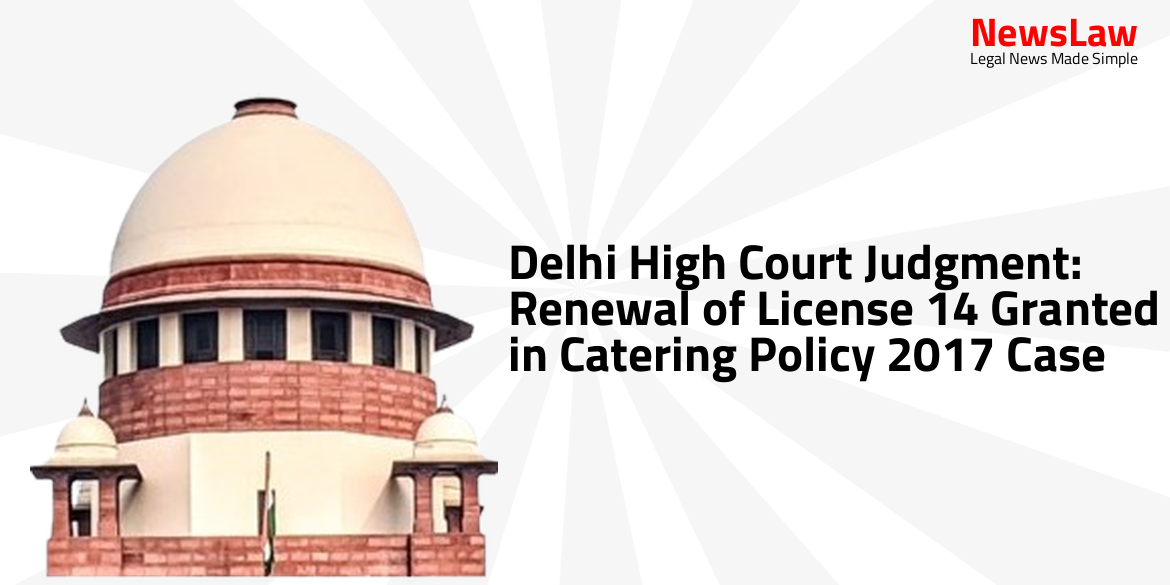On 2 September 2022, the appellant filed an application for obtaining a certified copy of the order which was pronounced by the NCLT. The appellant stated that the prescribed time period of 30 days for filing the appeal ended on 5 October 2022, after accounting for the exclusion of 10 days (from 5 September 2022 to 15 September 2022 on account of the time taken to provide a certified copy). It noted that 10 days (from 26 August 2022 to 4 September 2022) were spent prior to the application for a certified copy and between 15 September 2022 and 4 October 2022 another period of 20 days elapsed.
Also Read: https://newslaw.in/case-type/civil/caste-certificate-cancellation-and-employment-reinstatement/
The NCLAT has erroneously taken the entire period between 26 August 2022 and 10 October 2022 by failing to exclude the date on which the order was pronounced, namely, 26 August 2022 in terms of Section 12(2) of the Limitation Act 1963 and Rule 3 of the National Company Law Appellate Tribunal Rules 2016 ; iii.
On 21 October 2022, a further order was issued by the Registrar of NCLAT clarifying that the period of limitation shall be computed from the date of the presentation of the appeal as per Rule 22 of the NCLAT Rules 2016, the effect of which was that the period of limitation would cease to run only after a physical copy was presented; iv. By an order of 24 December 2022, notified by the Registrar of the NCLAT, the earlier order dated 21 October 2022 was withdrawn and it was notified for the first time that limitation shall be computed with reference to the date of e-filing; and v. Sub-Section (2) of Section 61 provides for a period of limitation in the following terms: Sub-Section (2) of Section 61 provides for a limitation period of thirty days.
The SOP notices that an e-filing facility was available for filing of appeals and related documents, and exhorts “all concerned” to “avail the same through NCLAT e-filing portal”.
Also Read: https://newslaw.in/supreme-court-upholds-acquittal-of-accused-in-hebbale-property-dispute-case/
The above order dated 21 October 2022 indicates that the SOPs and directions which were issued by the NCLAT did not contain any provision for the computation of limitation, more specifically on whether limitation has to be computed with reference to the date of e-filing or from the date on which the appeal is presented before the NCLAT, in terms of Rule 22.
This is made evident in the SOP dated 3 January 2021 which mandates the filing of a physical copy of an appeal as per the procedure prescribed in the NCLAT Rules 2016, while referring to the procedure for the hearing of cases through the virtual mode, using the e-filing portal. In the present case, admittedly, the appeal was e-filed on 10 October 2022 and even a physical copy was lodged on 31 October 2022 prior to the date on which the order of the Registrar dated 21 October 2022 was to come into effect.
Between 26 August 2022, when the order was pronounced by the NCLT, and 10 October 2022, when the appeal was e-filed, a period of 45 days elapsed after excluding the date on which the order was pronounced. The Court held that limitation commences once the order was pronounced and the time taken by the court to provide the appellant with a certified copy would be excluded, as clarified in Section 12(2) of the Limitation Act 1963, if the appellant had applied for a certified copy within the prescribed period of limitation under Section 61(2) of the IBC. Hence, the period of 10 days between 5 September 2022 and 15 September 2022 taken by the court to provide a certified copy of the order ought to be excluded when determining the period of limitation under Section 61(2) of the IBC. Before concluding, we cannot but fail to notice the flip-flops on the part of the NCLAT in providing administrative guidance on whether limitation would commence from the date of e-filing or from the presentation of the appeal at the filing counter. A lawyer or litigant who is compelled to file physical copies in addition to e-filed documents will have no cogent reason to resort to e-filing.
Also Read: https://newslaw.in/case-type/criminal/quashing-of-fir-in-a-matrimonial-dispute/
Both the Union government in its rule making capacity and the 16 administrative heads of tribunals must ensure a seamless transition to working in the electronic mode. The appeal shall accordingly be restored to the file of the NCLAT for disposal on merits.
Case Title: SANKET KUMAR AGARWAL Vs. APG LOGISTICS PRIVATE LIMITED (2023 INSC 727)
Case Number: C.A. No.-000748 / 2023



